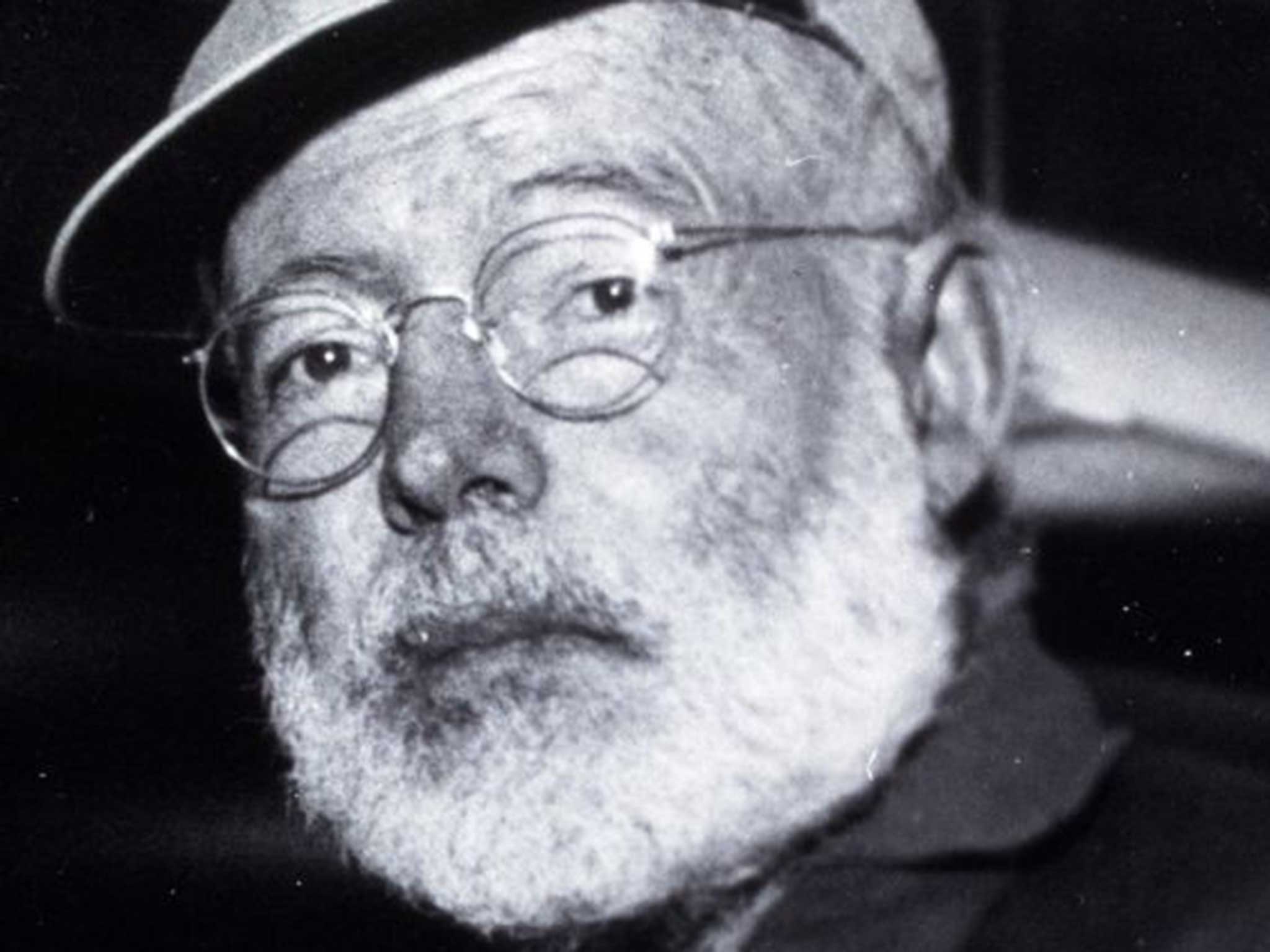Cuba denies access to Ernest Hemingway’s fishing records
Team of US marine scientists on a tour with the author’s grandsons 'return empty-handed'

Your support helps us to tell the story
From reproductive rights to climate change to Big Tech, The Independent is on the ground when the story is developing. Whether it's investigating the financials of Elon Musk's pro-Trump PAC or producing our latest documentary, 'The A Word', which shines a light on the American women fighting for reproductive rights, we know how important it is to parse out the facts from the messaging.
At such a critical moment in US history, we need reporters on the ground. Your donation allows us to keep sending journalists to speak to both sides of the story.
The Independent is trusted by Americans across the entire political spectrum. And unlike many other quality news outlets, we choose not to lock Americans out of our reporting and analysis with paywalls. We believe quality journalism should be available to everyone, paid for by those who can afford it.
Your support makes all the difference.A quest to access potentially invaluable fishing logs kept by Ernest Hemingway in Cuba appeared to have failed yesterday, after US researchers attempting to gain knowledge of over-fishing were denied access to the materials collated by the Nobel Prize-winning author.
A team of US marine scientists on a tour with the author’s grandsons, John and Patrick Hemingway, had hoped to access the his logs of fishing in the Florida Straight.
“He was a fisherman,” said Patrick Hemingway of his grandfather last week. “He considered them his brothers.”
But Cuba’s National Cultural Heritage Council denied the team access to the records. And yesterday they were reported to have returned home empty handed.
“Perhaps I should not have been a fisherman,” wrote Hemingway in his ode to game fishing off the Cuba coast, The Old Man and the Sea. “But that was the thing that I was born for.”
Dr David Die, a US-based fishery scientist, said: “Hemingway was there in Cuba for 20 years. If he did keep log books for that long, having 20 years – even if it is only for a single vessel – would be very valuable.
“It would be a record of relative changes in the size and the abundance of fish over a period where we do not have any other records. It’s exactly the type of information that we use nowadays when we assess populations of fish in the ocean.”
The logs are thought to contain enough details about Hemingway’s decades of game fishing to help measure how populations of sport fish such as marlin have declined because of overfishing.
Researchers gathered little empirical data in the years before industrial fishing devastated populations of tuna and other highly desired big species in the second half of the 20th century.
Hemingway lived in Cuba from 1939 to 1960 at Finca Vigía, a villa in the village of San Francisco de Paula on the southeast edge of Havana. From Cojimar, he often launched his boat, the Pilar, with first mate Gregorio Fuentes, who helped inspire the ageing fisherman who battles a giant marlin in The Old Man and the Sea.
Join our commenting forum
Join thought-provoking conversations, follow other Independent readers and see their replies
Comments